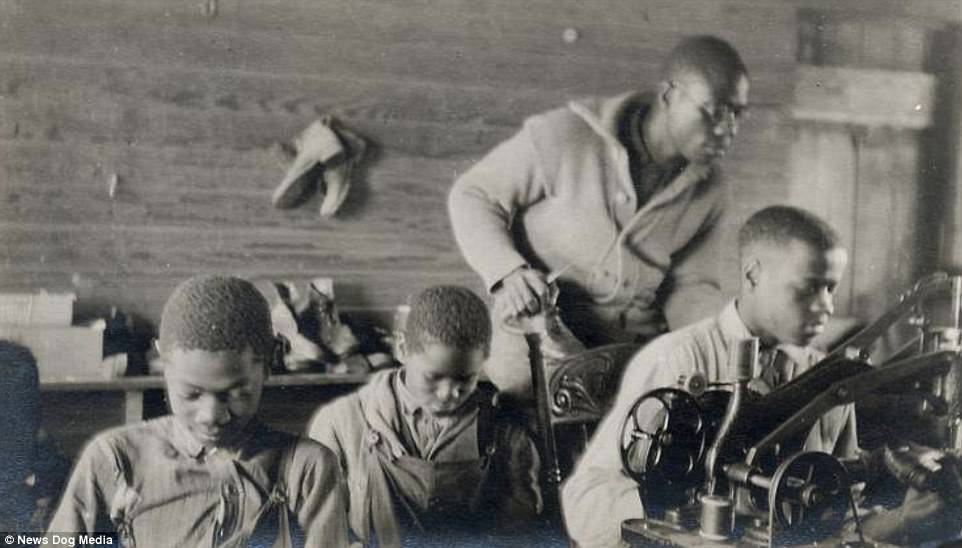One of the key commitments Meachum Village wants Black Christian men to make is this:
We will position ourselves and our sons to be our families’ primary providers.
In 1 Timothy 5:8, the Apostle Paul says “Give the people these instructions, so that no one may be open to blame. Anyone who does not provide for their relatives, and especially for their own household, has denied the faith and is worse than an unbeliever.”
This passage was addessing to men who refuse to provide. Many of us come from families where our mothers were the providers and our fathers were worse than unbelievers.
Around my 40th birthday, I got sick of trying to provide for my family through systems that clearly didn’t welcome me. Certain industries and corporate environments—including ministry—either shut the door or required too much code-switching.
When my wife and I bought a fixer upper, I became interested in the trades.
We had fun pitching in on the labor. I helped hang cabinets, paint, and whatever else I could.
I asked myself why had I never considered a trade before, even during a long stretch of unemployment? I enrolled in an electrician program.
Our Ancestors Encouraged The Trades
It’s amazing how many of our ancestors relied on the trades to free themselves and their families from slavery. They relied on the work of their hands to buy their freedom and their families’ freedom, buy land, grow food, and build a house. They were craftsmen, and there was a need for their skills.

The sociologist E Franklin Frazier noticed this pattern among Black men and families who got their freedom before the Civil War. In his book, The Free Negro Family (1932), Frazier saw that they were shoemakers, brick layers, tobacco manufacturers, barbers, carpenters, blacksmiths, tailors. They used these skills to build thriving communities. They continued to rely on these skills to sustain themselves after slavery and eventually create Historically Black Colleges and Universities.
This community is named for John Berry Meachum. He purchased his own freedom from slavery using his carpentry skills. He purchased his whole family—parents, wife, children—using his carpentry skills. Then, he purchased other enslaved people, trained them in carpentry until they paid him back. Then, he bought more enslaved people.

After schooling our children, we can bind them to different trades, so that we may possess among our people all the arts and sciences that man is in possession of.
Some of you think you cannot spare your children to go and learn a trade, but you are mistaken; you may have them longer than if they had no trade; for many times your children go to hard servitude on boats or ships, and you never see that son or daughter again.
If you had done your duty in giving him a trade, he might set up business in the same city where you live, or travel off to find a better place; and when he has worked long enough to know that it is a better place than where he learned his trade, he goes back and tells them what a fine place he has found, or writes to them to come on where he is.
You can either go, or let it alone, but you can see that the child is not exposed to all kinds of danger, as if he had no trade…Now let your children learn a trade, or learn to be farmers, and in ten years you would see a great improvement among this people.
— John Berry Meachum, pastor, former slave turned carpenter, abolitionist, 1846

Read John Berry Meachum’s Advice for Blacks Coming Out Of Slavery
John Berry Meachum and his wife Mary were devout Christians and abolitionists. They were born into slavery, but John purchased his family’s freedom at 21 years old. John and Mary started a school for Blacks in their church. When Missouri outlawed education for Blacks, they moved their school to a boat outside of state lines. As an entrepreneur and pastor, John Meachum purchased and freed other enslaved people. Before he died in 1854, Meachum wrote a pamphlet with clear instructions for Blacks coming out of slavery. Maybe now we’ll listen…
Booker T. Washington wanted Black men to be the nation’s builders
He urged whites to stop looking for trade labor from European immigrants and rely on the same group that had already been faithfully doing it— Black people.
Even though Booker T. Washington wanted Blacks to cater to white racism, he urged Blacks to embrace the skills they learned during slavery to start businesses. White people were already dependent on us for everything; might as well get paid for it.

In his Atlanta Compromise Speech in 1895, Washington told a group of white leaders that looking for labor among immigrants was like looking for water in the ocean. Instead, “cast down your bucket among these people who have without strikes and labor wars tilled your fields, cleared your forests, builded your railroads and cities, and brought forth treasures from the bowels of the earth, and helped to make possible this magnificent representation of the progress of the South.”
— Booker T. Washington, 1895
The white people didn’t go for that plan. White Americans welcomed white European immigrants with open arms. More than 12 million people from Europe flooded into the United States between 1870 and 1900.
When black people started running from racial terror in the south and looking for jobs in the North, the white immigrants were our grandfathers’ primary competition for jobs. The white immigrants were way too unified to share.
Our grandfathers’ trade skills were useless
Carter G Woodson breaks it down simply in a 1930 article in The Journal of Negro History “Negro men who had followed trades in the South were barred therefrom by trade unions in the North, and the more enlightened and efficiently trained Irish and Germans immigrating into the United States drove them out of menial positions.” (FYI: John Berry Meachum also warned us that moving to the big cities would cut off opportunities to be self-reliant.)
In his book, The Man-Not, Dr. Tommy Curry explained how this same exclusion from the job market continued in the 1970s and even today:
The post-Civil Rights economic prospects for Black men, who traditionally had been blue-collar workers and laborers, were marked by poverty and growing unemployment in the second half of the 20th century..Historically, Black men often fare worse than Black women in professional and skilled employment settings because of the different stereotypes that apply to Black males and the level of education between the groups. . .Black men are often associated with such negative stereotypes that any assertive act of speech or demonstration of leadership is thought to be threatening.
Some of us have to fight for a voice or code-switch so much that we leave certain industries altogether.
So, Should Black Men Try the Trades Again?
The answer is yes.
Black men have consistently held a higher unemployment rate than Black women, White women, and White men.
For those of us with professional positions, too many of us are stressed to death trying to provide for families through a paycheck from toxic work environments. Even then, we can go through long stretches of unemployment and push our wives into the provider role.
This is not what God wants for us. And if we’re honest, it’s hard to function as leaders of our families when we aren’t doing the role Yah designed us for — to provide. We have jobs but when that job is gone, we need skills to fall back on.
Think of all the abandoned buildings in Black communities. Even if our city governments gift-wrapped those buildings and gave them to Black, Christian men free and clear, we’d have to call Mexicans and get a loan to fix them up. We probably would even have trouble working together.
Our ancestors would be ashamed of us for letting go of our building skills. I say, it’s time to get them back.
Read: Should Black Men Take Over the Trades (Part 2 – The Future)
Disclaimers: The content featured on Meachum Village is for information and inspiration only. Please consult your own attorney, physician, financial advisor, pastor, therapist, mama and daddy, or whoever before you take any advice. The content featured on the Meachum Village website means the specific message resonates with the mission of Meachum Village. It does not mean we endorse everything about that person. The Meachum Village team may not know these people personally, and we are not responsible for any unGodly craziness they’re into outside of the featured content. If your content has been featured on the Meachum Village website, and you would like it removed, please email hello@meachumvillage.org.

